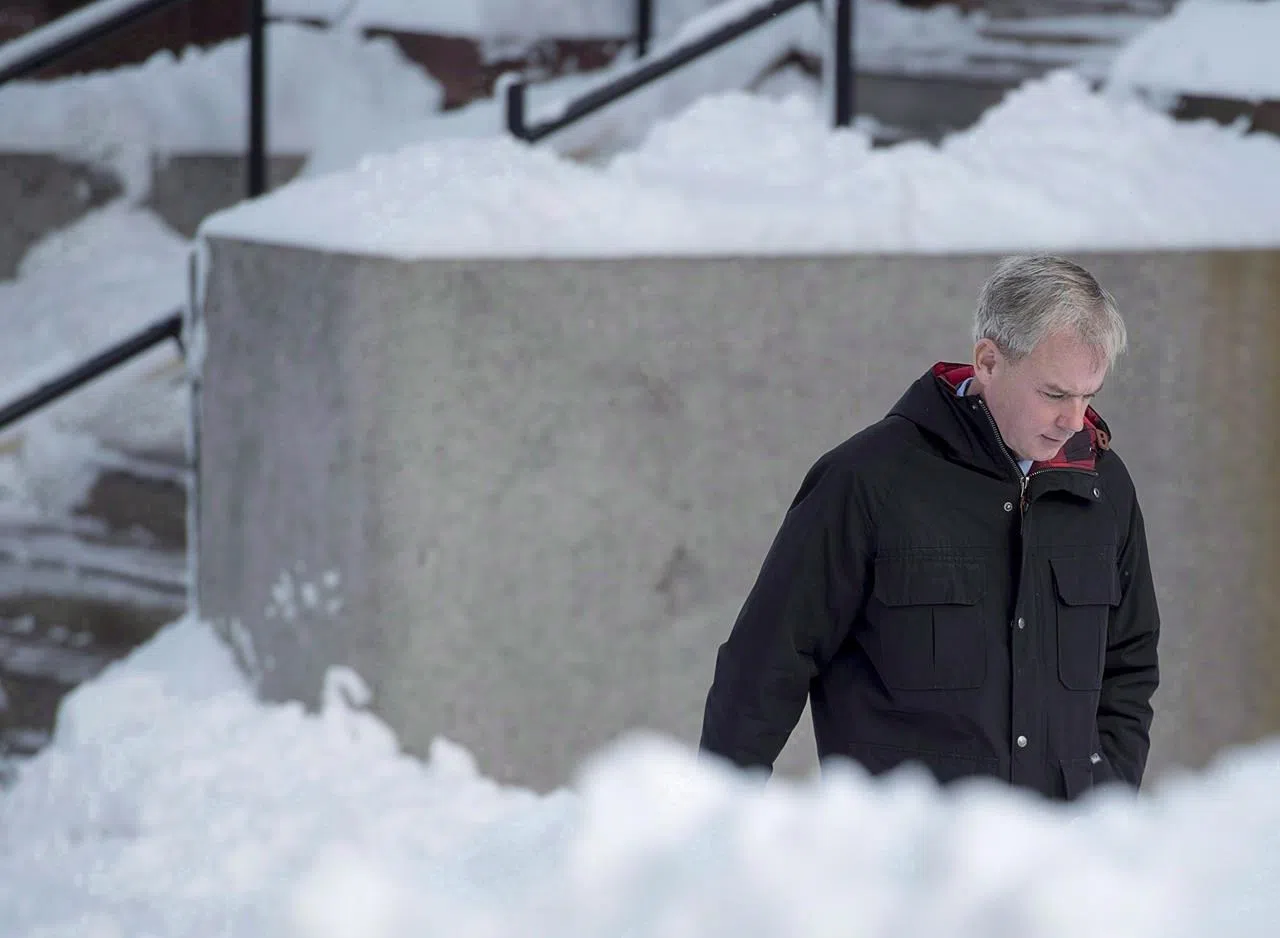
No bloodstains found in Dennis Oland’s car, officer tells murder trial
SAINT JOHN, N.B. — Although it was dirty and appeared not to have been cleaned, the car Dennis Oland was driving the evening his father, Richard, was murdered did not produce any suspicious bloodstains, a Saint John court was told Tuesday.
Saint John police seized Dennis Oland’s Volkswagen Golf on July 14, 2011, a week after Richard Oland’s body was found lying on the floor of his Saint John office in a pool of blood.
He had been struck more than 40 times, mostly on the head, with both a sharp and blunt instrument. A weapon was never found.
Sgt. Mark Smith is on the stand this week at Dennis Oland’s second-degree murder trial, describing in minute detail the many objects he collected from the crime scene and the search for evidence in and on items belonging to the accused.


